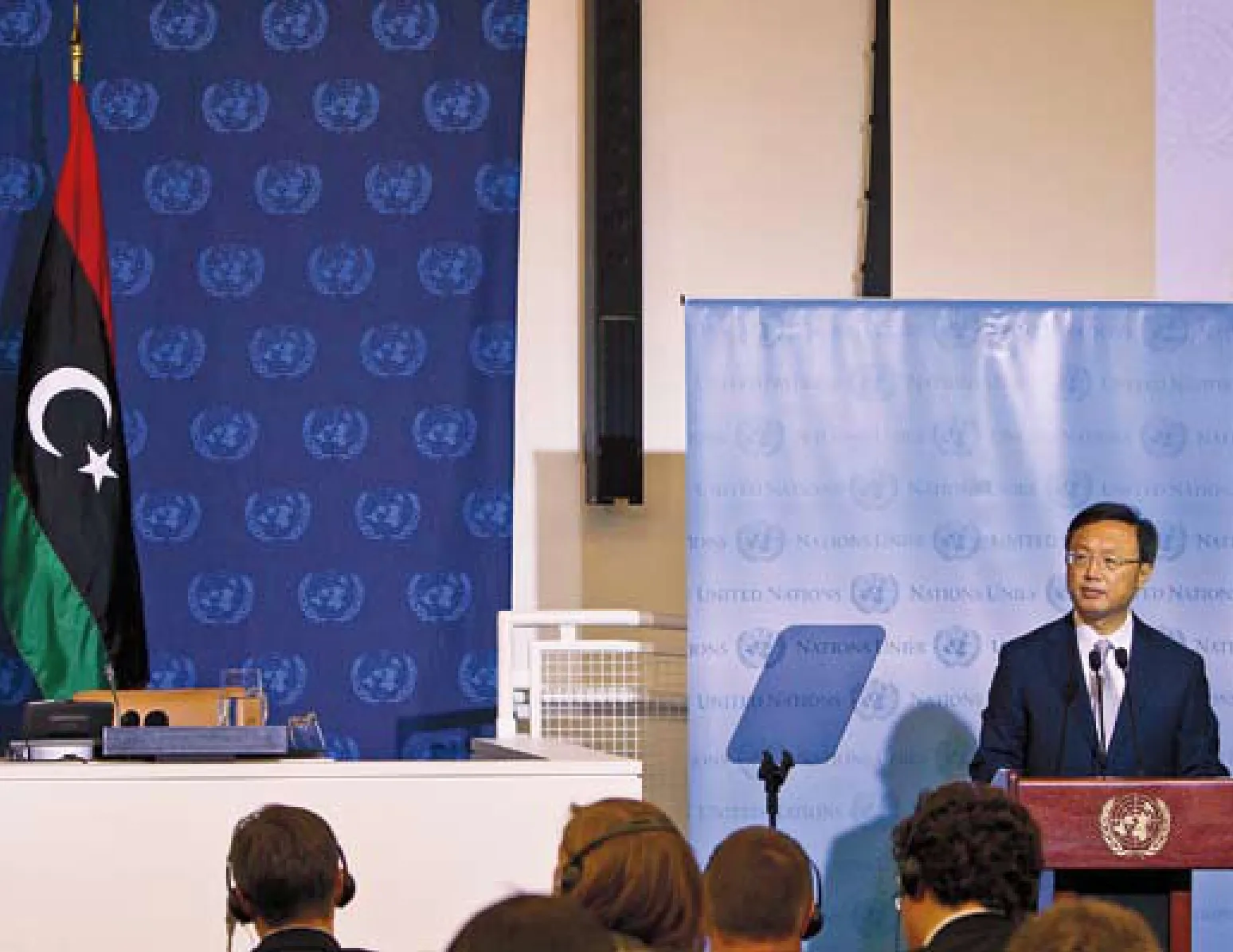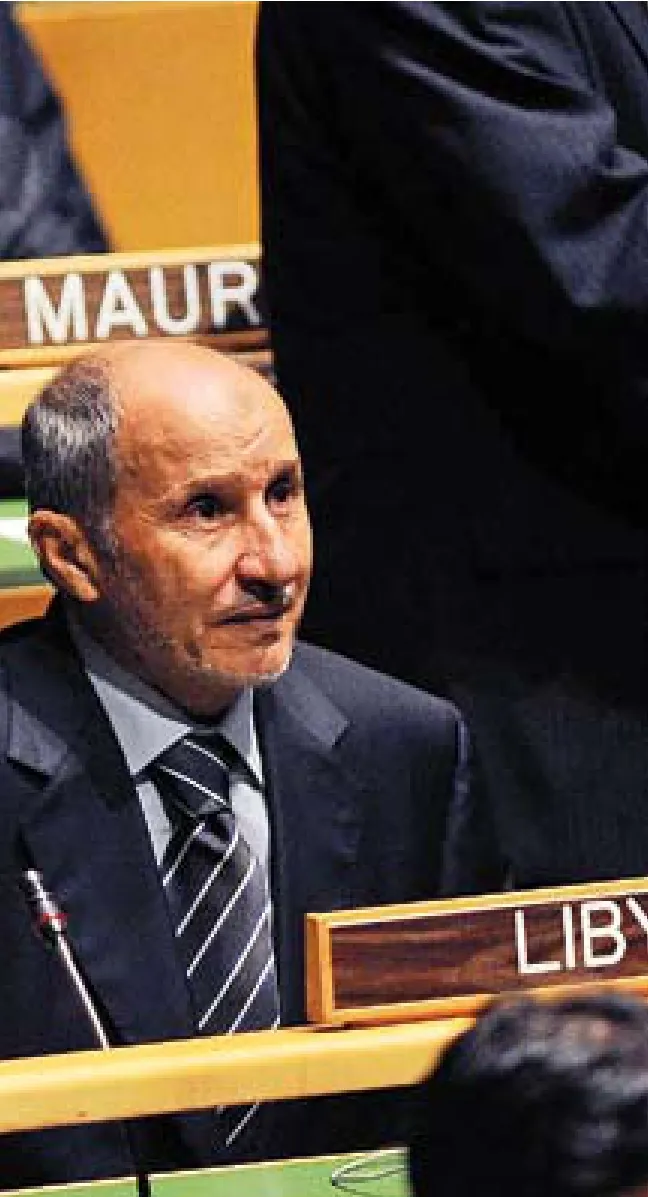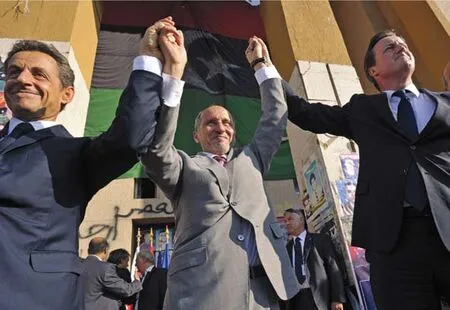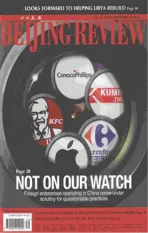Libya Moves On
2011-10-14ByDINGYING
By DING YING
Libya Moves On
By DING YING
China to play an active role in Libya’s reconstruction
Three weeks after the Libyan National Transitional Council(NTC) declared the end of the fourdecade rule of Muammar Gaddafi,China recognized the NTC as Libya’s legitimate government on September 12.
China was the last permanent member of the UN Security Council to recognize the NTC. Libya has now entered a new era,and China, like other world powers, will actively participate in the war-torn country’s reconstruction.
Recognition
“China stated that it respects the choice of the Libyan people, values the important status and role of the NTC, and has maintained close contact with it,” said Chinese Foreign Ministry spokesman Ma Zhaoxu.“China recognizes the NTC as the ruling authority of Libya and the representative of the Libyan people and would like to work with it to push for the smooth transition and development of Sino-Libyan relations.”
He said China hopes previously signed treaties and agreements between the two countries will remain valid and be earnestly implemented.
Major changes have taken place in Libya, and the country is now in a critical stage of reconstruction and transition.China raised no objection during the UN Security Council Libya Sanctions Committee’s discussion of releasing the Libyan Government’s assets in August,but only asked countries to provide more complete and clearer information on the usage and supervision of the assets, Ma said. China will continue to adopt a responsible and constructive attitude when dealing with similar issues in the future.
“We hope that an interim government will be formed at an early date to ensure peaceful and orderly transition of power,”Ma said.
“Now is the perfect time to recognize the NTC, neither too early, nor too late,”said Professor Li Zhaojie, who is an expert on international law studies at the Beijingbased Tsinghua University.
International law doesn’t focus on how a new government gets power, whether through peaceful transition or through revolution or coup, he said. Instead, it focuses on whether or not this new government can become the country’s legal representative in the world community. International law also looks at whether the new government can effectively govern, or whether the government effectively controls most of the country’s territory and has the support of most of its citizens.
Li said since the NTC now basically controls the whole Libya and has won most Libyans’ support, China should admit the new government in accordance with international law.
China is a responsible country abiding by principles, said Ma. China upholds a just position on the Libyan issue, making judgments and decisions based on the purposes and principles of the UN Charter,international law as well as the principles of non-interference in internal affairs and respect for the Libyan people’s choice.
Li highlighted the responsible nature of China’s recognition of the NTC. He said China must consider both its political relationship with Libya and international law when recognizing the NTC, avoiding premature or overdue recognition. If a country prematurely recognized a new government, it would be considered as intervening in the latter’s internal affairs. If it recognized in the new government too late,it might be suspected of intervening in the latter’s domestic affairs, too.

(From left to right)CHINA’S STANCE:Chinese Foreign Minister Yang Jiechi speaks at a high-level meeting on Libya at the UN headquarters in New York City on September 20

NEW KID ON THE BLOCK: Mustafa Abdul Jalil, head of Libya’s National Transitional Council(NTC), takes his country’s seat during the general debate of the 66th session of the UN General Assembly on September 21
China’s attitude on Libya is consistent,Li said. It must take some time to watch before recognizing a new government,especially one that is established through non-peaceful methods. That’s why China waited until the NTC became completely stable to take responsibility for representing Libya in the world.
Ding Chengyao, another expert on international law with the East China University of Political Science and Law in Shanghai, pointed out that China has been playing a responsible role ever since the beginning of the NATO-led military intervention in Libya in March.
From March to July, China maintained contact with both the Gadda fi government and the NTC, intending to push forward reconciliation. When the NTC started to exercise administration over Libya in August, China expressed its attitude of“respecting the Libyan people’s choice.”By September 12, about 70 countries had recognized the legitimacy of the NTC.
The International Monetary Fund recognized the council on September 1, a move that greatly in fl uenced China’s fi nal decision, Ding said.
The UN General Assembly voted to give Libya’s seat in the UN to the NTC on September 16. On the same day, the UN Security Council adopted a resolution to lift sanctions against Libya’s assets. It also set up a UN mission to help restore public security and initiate economic recovery in the North African country.
Participation
Considering the economic interdependence between China and Libya, China and the NTC will cooperate during Libya’s reconstruction, said Mei Xinyu, a researcher with the Chinese Academy of International Trade and Economic Cooperation.
After China recognized the NTC, the NTC said the Libyan people and the NTC are happy at China’s recognition and had long been looking forward to it. Attaching great importance to China’s status and role, the NTC will stick to the one-China policy, welcome China’s participation in Libya’s reconstruction and jointly advance bilateral relations with China.
China said it hopes Libya can restore stability, embark on the path of political and economic reconstruction and maintain national unity and solidarity. China would like to work with the NTC to push forward Sino-Libyan cooperative relations of friendship and mutual bene fi t on the basis of mutual respect, equality and reciprocity.
“We adopt a positive attitude toward the post-war reconstruction of Libya,” said China’s Foreign Ministry. Moreover, visiting French Foreign Minister Alain Juppé declared in Beijing that France would like to cooperate with China and jointly participate in Libya’s reconstruction on September 13.
Mei pointed out that economically,Libya relies greatly on China. Official Chinese statistics show the two sides’ trade volume was $6.58 billion in 2010, with China’s exports to and imports from Libya amounting to $2.06 billion and $4.51 billion respectively. Libya’s oil exports to China accounted for 11 percent of its total oil output.
The contract volume of Chinese enterprises’ projects in Libya was about$5.84 billion in 2009, about 4.6 percent of China’s total contract volume in foreign countries. Also, by the end of 2009,China had invested about $42.69 million in Libya.
Mei said the NTC now is in urgent need of reconstruction. Chinese enterprises have outstanding advantages in providing inexpensive commodities and more effi cient building projects. There is therefore no reason for the NTC to discard Chinese enterprises and turn to more expensive goods and services.
The NTC has declared it will honor all treaties and agreements signed between the two countries, including oil agreements that Libya previously signed with Chinese enterprises.
Given devastating effects of the war,Libya might have much less income from exporting oil than during Gaddafi’s rule.But the NTC will bene fi t from its cooperation with competitive Chinese companies,Mei said.

EU SUPPORT:French President Nicolas Sarkozy, NTC head Mustafa Abdul Jalil and British Prime Minister David Cameron (left to right)join hands in Benghazi on September 15
